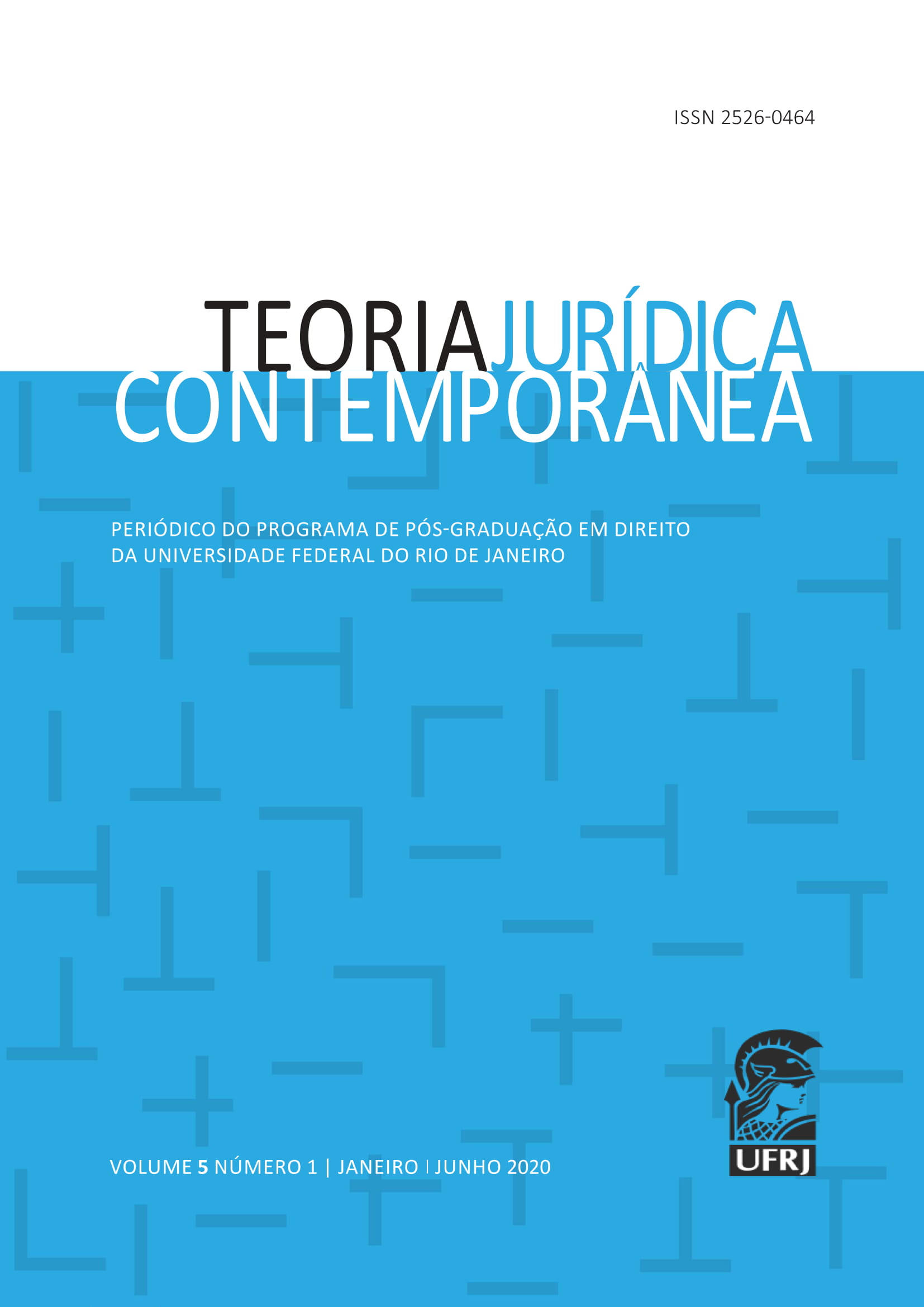"My Kingdom is not from this World”: Ronald Dworkin and the Challenge of Religion
DOI:
https://doi.org/10.21875/tjc.v5i1.26738Keywords:
Ronald Dworkin, Religion, Religious freedom, Robert George, Fundamental rightsAbstract
ABSTRACT:
The paper is a dialogue with Dworkin’s posthumous book, Religion Without God. Firstly, I intend to reconstruct accurately Dworkin’s argument in the book and in other recent writings, then I try to scrutinize how the dworkinian idea of a general right to ethical independence, instead of a special right to religious freedom, would apply in a concrete situation. Secondly, I analyze two objections that religious conservatives might advance against Dworkin’s liberal project. The first objection claims that the author unsuitably imports to religion a distinction between fact and value that is typical of philosophy, but not of religiosity. The second objection affirms that religion is a basic good of reflexive character, and not something individualistic as Dworkin defends. My conclusion is that religious freedom is a problem that demands a political solution, and that perhaps the most respectful position towards religion would recognize that some parts of it might be sacrificed in the name of other values we believe important.
Downloads
References
DOMINGO, Rafael. “Religion for Hedgehogs? An argument against the Dworkinian Approach to Religious Freedom”. Oxford Journal of Law and Religion, Vol. 2, Nº 2, 2013.
DWORKIN, Ronald. A matter of principle. Cambridge, USA: Harvard University Press, 1985.
DWORKIN, Ronald. Law’s empire. Cambridge: Harvard University Press, 1986.
DWORKIN, Ronald. Domínio da Vida. São Paulo: Martins Fontes, 2009.
DWORKIN, Ronald. Justice for Hedgehogs. Cambridge: Harvard University Press, 2011.
DWORKIN, Ronald. Religion Without God. Cambridge: Harvard University Press, 2013.
FINNIS, John. Natural Law and Natural Rights. Oxford: Oxford University Press, 2011.
FISH, Stanley. “Deeper than God: Ronald Dworkin’s Religious Atheism”. The New York Times, September 23, 2013. Disponível em: https://opinionator.blogs.nytimes.com/2013/09/23/deeperthangodronalddworkinsreligiousatheism/
GEORGE, Robert P. Making Men Moral – Civil Liberties and Public Morality. Oxford: Clarendon Press, 1993.
GEORGE, Robert P. In Defense of Natural Law. Oxford: Oxford University Press, 1999.
MOVSESIAN, Mark. “Religion Without God” (resenha). First Things, October 31, 2013. Disponível em: https://www.firstthings.com/blogs/firstthoughts/2013/10/religionwithoutgod
SMITH, Steven. “Is God Irrelevant?”. Boston University Law Review, Vol. 94, 2014.
WILLIAMS, Bernard. “Liberalism and Loss”. In: LILLA, Mark; DWORKIN, Ronald; SILVERS, Robert (Eds). The Legacy of Isaiah Berlin. New York: New York Review of Books, 2001.
WILLIAMS, Bernard; HAWTORN, G. (ed.). In the Beginning was the Deed – Realism and Moralism in Political Argument. Princeton: Princeton University Press, 2005a.
WILLIAMS, Bernard. “From Freedom to Liberty: The Construction of a Political Value”. In: WILLIAMS, Bernard; HAWTORN, G. (ed.). In the Beginning was the Deed – Realism and Moralism in Political Argument. Princeton: Princeton University Press, 2005b.
WITTGENSTEIN, Ludwig. Philosophical Investigations, 4th ed. Edited by P. M. S. Hacker and Joachim Schulte. Oxford: Wiley-Blackwell, 2009.
NOTÍCIAS:
https://www.splcenter.org/hate-map
http://brasil.elpais.com/brasil/2017/06/04/internacional/1496613230_454300.html
http://brasil.elpais.com/brasil/2017/06/16/politica/1497624155_222166.html
Downloads
Published
Issue
Section
License
The authors who publish in this journal agree with the following terms:
1. The authors maintain the copyright and grant the journal the right of first publication, with the work simultaneously licensed under the Creative Commons Attribution License that allows the sharing of the work with recognition of authorship and initial publication in this journal.
2. Authors are allowed to assume additional contracts separately, for non-exclusive distribution of the version of the work published in this journal (e.g., publishing in an institutional repository or as a book chapter), with acknowledgment of authorship and initial publication in this journal.
3. Authors are allowed and encouraged to publish and distribute their work online (e.g., in institutional repositories or as a personal page) at any point before or during the editorial process, as this may generate productive changes, as well as increase the impact and citation of the published work (See The Effect of Open Access).

This work is licensed under a Creative Commons Attribution-ShareAlike 3.0 Brazil License.

